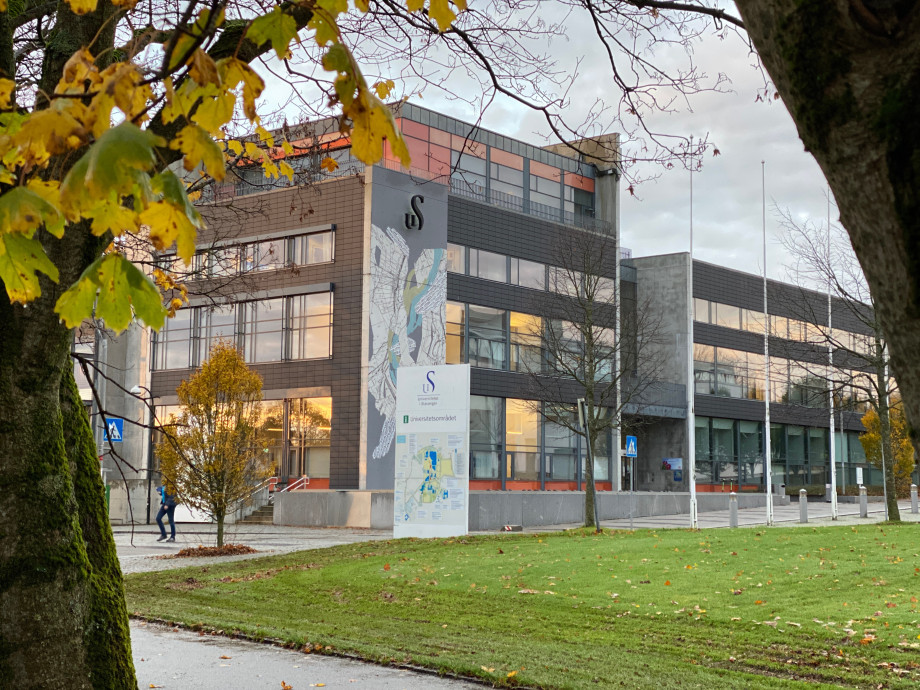Six different research communities at the University of Stavanger (UiS) have applied to become Norwegian centres of excellence in research. In addition, researchers at the university are working in close collaboration on two applications from Stavanger University Hospital.

Six different research communities at the University of Stavanger (UiS) have applied to become Norwegian centres of excellence in research. In addition, researchers at the university are working in close collaboration on two applications that are being sent from Stavanger University Hospital.
In the coming weeks, it will be decided which of the more than 160 applications will be invited to apply to round two of the selection process.
“we will consider it a feather in our cap should the University of Stavanger be successful in this competitive selection to be appointed as Norwegian centre of excellence”, says Merete Vadla Madland, vice-rector of research.
The six research communities that have applied for this centre status are connected to environmental humanities, risk analysis, physics, health, as well as two applications from the Business School, within the areas of innovation and leadership.
Building strong research communities
The centre of excellence scheme provides Norway’s leading research communities with the opportunity to organise themselves as centres to work with ambitious ideas and complex problems through collaboration and long-term funding.
This is the fifth time the Research Council of Norway will be appointing such centres, and the third round in which UiS researchers are participating.
“We are proud that the university has been able to support and build such strong research communities that are competing for centre status at a national level. It is exciting to follow the development of these research communities,” commented the vice-rector.
The making of environments
The Greenhouse, led by professors Dolly and Finn Arne Jørgensen, are applying for funding for the Greenhouse Center for More-than-Human Studies, which aims to understand the relationship between humans, nonhuman nature, and technologies in the making of environments.
Quality and security in the health sector
The SHARE Centre for Quality and Security in Healthcare is the leading research community in Norway within the field of quality and security in the healthcare sector. Professor Karina Aase and Siri Wiig are leading this research team, which is now applying to become a centre that will contribute to new and better understanding of quality and security in healthcare internationally.
Researching leadership enactment
The ENACT: Center for Experimental Field Research on Leadership Enactment is headed by Professor Mari Rege, in collaboration with Professors Oddny Solheim and Sigrun Ertesvåg, ENACT will investigate measures to promote leadership practices that contribute to motivation and learning. In various organisational settings, such as in the family, in the classroom, and the workplace, many individuals may lack sufficient opportunities to thrive and develop. One reason for this is that leaders, i.e., those responsible for supporting the individual’s well-being and development, do not succeed in their roles as parents, teachers, or leaders.
The key research question in ENACT is: What factors support and maintain effective leadership practices in the family, classroom, and the workplace? The application builds on the good experiences in Synapselab with large randomised field experiments in close collaboration with organizations.
Identifying challenges with innovation
the Centre for Innovation, Institutions and Policy – CIIP, will be led by Professor Andrés Rodríguez-Pose and Associate Professor Marte C.W. Solheim. In CIIP, the research group will look at how technological changes and innovations change the activities, production, and organisation of a business, and how this causes economic (productivity growth, employment), social and political challenges for individuals, companies, and regions in Europe and the USA.
Quark Lab
The researchers within Theoretical subatomic physics and cosmology at UiS are the largest team in Norway within this field, and one of the strongest teams within the fields of basic research at the university. They are now applying for the Quark Lab: Centre for fundamental physics research. The lab is to be led by Associate Professor Alexander Rothkopf and Associate Professor Aleksi Kurkela.
What distinguishes Quark-Lab from other research centres is its strength in theoretical physics. The team consists of world-leading experts in computational methods that allow us to translate the fundamental laws of physics into testable predictions. These capabilities allow Quark-Lab to build a bridge between the collider physics and gravitational wave astronomy communities based on fundamental theory.
Pandemics and climate change
Researchers within different areas of risk analysis are looking to establish the Centre for Risk-Informed Policy – CRISP, under the leadership of Professor Frédéric Bouder. Should it be successful, this would become the first scientific hub that binds together research on the branches of risk analysis. The team will use Interdisciplinarity to formalise and advance risk science, with special focus on pandemics, climate change, and security.
By Karen Anne Okstad and Elin Nyberg. Translated by Gwennaelle Wathne.